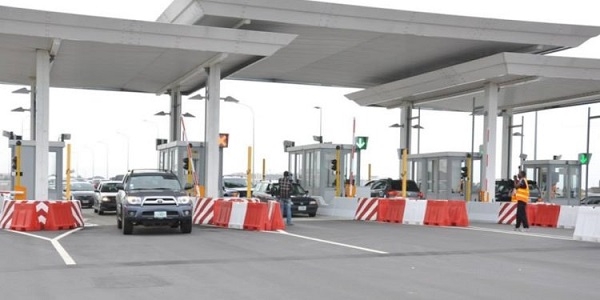Mexico, Florida, and Hawaii's New Tax Policies Are Poised to Increase Disney Vacation and Cruise Expenses for Families Worldwide - Travel And Tour World
Monday, May 26, 2025

Recent changes to tourism tax policies in are expected to significantly raise the costs of Disney vacations and cruises, affecting families planning their dream trips. In , increased tourism taxes on accommodations and services near Disney parks will directly impact families visiting Disney World, making hotel stays, dining, and park tickets more expensive. Similarly, has introduced a new tax on Disney Cruise Line guests visiting its ports, which will gradually increase over the next few years, directly impacting the overall cost of cruises. Meanwhile, in , a new transient accommodation tax on cruise ships will add additional expenses for families traveling on Disney cruises that stop in the islands. These taxes, scheduled to increase in the coming years, will lead to higher overall vacation costs, forcing families to adjust their budgets and reconsider their plans for Disney-related travel.
Florida, a key hub for Disney visitors, is undergoing tax policy shifts that may indirectly raise expenses for tourists. While a recent proposal to replace property taxes for residents with a dedicated tourist tax did not come to fruition, the concept aligns with ongoing discussions about how to fund public services through tourism-generated revenues.
More concretely, the state legislature approved legislation that allocates seventy-five percent of tourism tax revenue to property tax relief efforts. This measure potentially pressures counties with major tourist centers, such as those near Disney World, to increase their tourism tax rates to maintain budget balances. As a result, families planning Disney vacations should anticipate that taxes related to accommodations, transportation, and other travel-related expenses might rise, increasing the overall cost of a visit.
Such taxation trends could shift the affordability balance for many travelers, especially those budgeting for family vacations. The incremental costs could impact decisions on trip length, lodging choices, and participation in various Disney attractions. This dynamic underscores the importance of early and thorough budget planning in light of possible tax increases.
Beyond Florida, guests embarking on Disney cruises to Mexico are facing new taxes that will add to their vacation costs. Beginning July 1, a new tax of five dollars per guest will be imposed on cruise fares. Though this initial fee is relatively modest, scheduled increases will see the tax double to ten dollars by mid-2026, rise to fifteen dollars by mid-2027, and reach twenty-one dollars by 2028.
These escalating fees can meaningfully affect the overall budget for families combining cruise experiences with Disney vacations. While industry negotiations managed to reduce an originally proposed higher tax, the phased increases remain a looming expense. Cruise planners and vacationers alike need to factor these charges into cost estimates when organizing trips that include Mexican ports of call.
Similarly, Hawaii has introduced a Transient Accommodation Tax targeting cruise visitors. This tax requires cruise companies to pay an eleven percent levy based on the daily prorated cruise fare for each day a ship docks in Hawaiian ports. Although collected from cruise operators, this cost is expected to be transferred to passengers, impacting travelers whose Disney cruises include Hawaii as a destination.
The tax revenue is earmarked to support environmental conservation, infrastructure improvements, and tourism sustainability projects across the Hawaiian islands. While these initiatives serve important ecological and community goals, they also contribute to increased travel expenses. For families planning Disney vacations incorporating Hawaiian stops, this tax represents an additional financial consideration.
The introduction and expansion of tourism-related taxes have generated concern within the travel planning and tourism sectors. Travel professionals warn that rising costs may reduce the appeal of Disney vacations and associated cruises, potentially resulting in fewer bookings and changes in travel behavior.
Families are expected to respond by seeking budget-conscious alternatives, such as shortening vacation durations, selecting less expensive accommodations, or exploring alternative destinations. There is also anticipation that discretionary spending on park visits and onboard experiences may decrease as travelers adjust to tighter budgets.
To counteract these challenges, travel agencies and Disney vacation planners are exploring innovative strategies. These include promoting vacation packages that incorporate tax offsets, emphasizing value through extended stays or bundled experiences, and highlighting lesser-known attractions to diversify trip offerings. Such measures aim to maintain guest satisfaction and attendance despite rising costs.
The cumulative effect of increasing taxes in Florida and key cruise destinations signals a significant shift in the economics of Disney vacations. Travelers and planners must remain vigilant in monitoring legislative developments and adjusting plans accordingly to manage expenses effectively.
Mexico, Florida, and Hawaii’s new tax policies are set to raise the cost of Disney vacations and cruises, impacting families worldwide by increasing expenses for theme park visits, accommodations, and cruise fares.
By proactively incorporating potential tax impacts into budgeting and considering flexible vacation options, families can continue to enjoy memorable Disney experiences while adapting to the evolving financial landscape. The tourism industry’s ability to innovate and respond to these challenges will be crucial in sustaining Disney vacations as a desirable choice for families worldwide.











